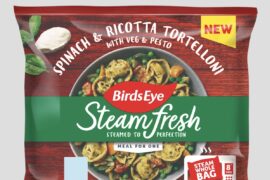VION Food has announced that it has entered into an agreement for the intended sale of Oerlemans Foods to the investment company H2 Equity Partners. Terms of the deal were not disclosed.
H2 Equity Partners, founded in 1991, is an independent investment company with head offices in Amsterdam. It has approximately EUR 500 million under management and invests in medium-sized companies in the Benelux, Germany and the UK.
“The sale is a consequence of VION’s revised strategy,” according to a statement issued by the Dutch firm. “Companies that are no longer part of the core activities are to be divested. Oerlemans Foods occupied an independent position within the VION Group.”
Headquartered in Venlo, Holland, Oerlemans Foods is a well-established manufacturer of frozen vegetables, fruit and potato products. Its Works Council has been informed about the proposed sale. The parties expect to be able to complete the transaction during the second quarter of 2014, after obtaining required statutory approvals.
With annual turnover of approximately EUR 135 million, Oerlemans Foods employs 740 people and produces over 1,000 products under the Oerlemans, Keizer, Bio+ and Bauer brand names, as well as private labels. Its factories in Holland and Poland cater to the international foodservice, retail and industrial markets.
 VION primarily produces and processes pork and beef products in Holland and Germany. It supplies client-specific products and other items to retail, industrial and foodservice clients around the world. Employing approximately 13,000 staff, the company rang up EUR 6.5 billion in sales last year. It is owned by the Dutch Zuidelijke Land- en Tuinbouworganisatie (ZLTO), an agricultural and horticultural association with some 16,500 members.
VION primarily produces and processes pork and beef products in Holland and Germany. It supplies client-specific products and other items to retail, industrial and foodservice clients around the world. Employing approximately 13,000 staff, the company rang up EUR 6.5 billion in sales last year. It is owned by the Dutch Zuidelijke Land- en Tuinbouworganisatie (ZLTO), an agricultural and horticultural association with some 16,500 members.
Meanwhile, the Group announced on March 5 that its VION Zeven AG slaughter and processing plant in Lingen, Germany, will be closed down as soon as possible – probably by April 30. The facility has been incurring ever-higher losses in the past few years, after failing to retain its main retail customer in 2008. As a result, the number of animals slaughtered dropped by 30% to only 12,000 pigs a week in 2013. Financial losses were more than one million euros per annum.
Intensified efforts to generate additional export orders proved inadequate to enable VION to achieve sufficient turnover. The company also suffered from a reduced supply of raw materials: the number of pigs supplied by Dutch companies close to the German border has dropped by more than 6,000 per week in the last few years.
VION Food has emphasized, however, that it plans to maintain a presence in Lower Saxony through its Emstek plant. A facility of this size, which has a permit to slaughter 70,000 pigs a week, is important for internationally active meat suppliers to be able to compete, specifically in Lower Saxony.





